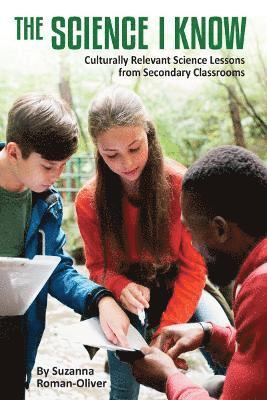
- Format
- Häftad (Paperback / softback)
- Språk
- Engelska
- Antal sidor
- 175
- Utgivningsdatum
- 2024-06-30
- Förlag
- Myers Education Press
- Dimensioner
- 218 x 147 x 13 mm
- Vikt
- ISBN
- 9781975506087
- 227 g
Science I Know
Culturally Relevant Science Lessons from Secondary Classrooms
- Skickas från oss inom 5-8 vardagar.
- Fri frakt över 249 kr för privatkunder i Sverige.
Passar bra ihop
De som köpt den här boken har ofta också köpt Courage To Be Disliked av Ichiro Kishimi, Fumitake Koga (häftad).
Köp båda 2 för 710 krKundrecensioner
Övrig information
Suzanna Roman-Oliver has been an educator for almost 20 years. She was a high school science teacher for English Language Learners for 12 years. After that, she worked as a Clinical Assistant Professor at Kennesaw State University. Her dissertation research, the inspiration for this book, focused on pre-service teachers understanding and implementation of culturally relevant pedagogy during their student-teaching experience. Dr. Roman-Oliver continues to do research to explore the influence of culture in the teaching and learning of science. She lives in Covington, Georgia, with her husband, son, and puppy. She is currently an Assistant Professor at Georgia College and State University.
Du kanske gillar
-
Peak Human
Johan Norberg
Häftad -
Atomic Habits
James Clear
Trade paperback (UK) -
John and Paul
Ian Leslie
Inbunden -
Let Them Theory
Mel Robbins
Inbunden


